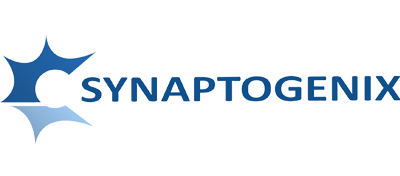Neurotrope Submits an Amended Protocol to the U.S. Food and Drug Administration for its Phase 2b Clinical Trial of its Lead Drug Candidate, Bryostatin-1, for the Treatment of Advanced Alzheimer’s Disease
NEW YORK, N.Y., August 15, 2016 (GLOBE NEWSWIRE) — Neurotrope, Inc. (OTCBB:NTRP) today announced that its wholly owned subsidiary, Neurotrope BioScience, Inc., has submitted to the Food and Drug Administration (FDA) an amended protocol for its Phase 2 clinical trial of lead candidate bryostatin-1 for the treatment of advanced Alzheimer’s disease. As planned in the original protocol, the primary efficacy outcome will occur at Week 13, and does not change with this amendment. The primary efficacy endpoint is based on the Severe Impairment Battery scale, a well-validated assessment used extensively in severe Alzheimer’s disease drug trials. Secondary efficacy endpoints include Activities of Daily Living, Neuropsychiatric Inventory and Mini-Mental State Exam. As a result of this amendment, the Company expects to report top line data late in the first quarter or early in the second quarter of 2017.
The original protocol of the clinical trial was designed to evaluate the safety and efficacy of two doses of bryostatin-1 (20µg or 40µg) versus placebo, followed by a total of seven doses administered over 12 weeks, with the primary efficacy evaluation at week 13. For exploratory purposes, a second study period of 12 weeks immediately followed the 13 week primary evaluation, with patients in the bryostatin-1 arms re-randomized to either receive the other dose of bryostatin-1 or stay on the same dose. Patients in the placebo arm were re-randomized to receive either bryostatin-1 (10µg) or placebo.
This protocol amendment eliminates the second study period, enabling the final analysis to take place immediately following the primary efficacy evaluation. Subjects who have already entered the second study period will have treatment discontinued. All subjects will have a final evaluation 30 days after the last dose of study drug.
“Eliminating the second randomization enables an earlier completion of the study, accelerates planning of future studies and does result in a significant cost and time savings,” said Dr. Daniel Alkon, Chief Scientific Officer of Neurotrope, Inc. “The study remains blinded without any interim data analysis performed. This decision was made solely to accelerate the evaluation and clinical development of bryostatin.” Dr. Alkon continued, “We are excited to be able to anticipate the final data from the trial earlier than previously expected.”
About Neurotrope
Neurotrope BioScience, Inc., a wholly owned subsidiary of Neurotrope, Inc., is at the forefront of biotechnology companies having a focus on developing a novel therapy for the treatment of Alzheimer’s disease. The scientific basis of our treatment is activation of Protein Kinase C isozymes ε and α by bryostatin, a natural product, which in mouse AD models was demonstrated to result in repair of damaged synapses as well as synaptogenesis, reduction of toxic beta-amyloid generation, and enhancement of memory and learning, thus having the potential to improve cognition and behavior in Alzheimer’s disease.
Neurotrope is also conducting preclinical studies of bryostatin-1 as a treatment for Fragile X Syndrome and Niemann-Pick Type C disease, two rare genetic diseases for which only symptomatic treatments are currently available. The FDA has granted Orphan Drug Designation to Neurotrope for bryostatin-1 as a treatment for Fragile X Syndrome. Bryostatin-1 has undergone testing in over 1,400 people establishing a large safety database.
Neurotrope has exclusively licensed technology from the Blanchette Rockefeller Neurosciences Institute for Alzheimer’s disease and Fragile X Syndrome, has a world-wide, exclusive license with the Icahn School of Medicine at Mt. Sinai for Niemann-Pick Type C disease and is partnered with Stanford University to synthesize and find the next generation bryostatin – called bryologs.
Forward-Looking Statements
Any statements contained in this press release that do not describe historical facts may constitute forward-looking statements. These forward-looking statements include statements regarding the proposed study and timing of initiation, and continued development of use of bryostatin for Alzheimer’s disease and other cognitive diseases, and the Company’s ability to list its common shares on a major stock exchange. Such forward-looking statements are subject to risks and uncertainties and other influences, many of which the Company has no control over. Actual results and the timing of certain events and circumstances may differ materially from those described by the forward-looking statements as a result of these risks and uncertainties. Factors that may influence or cause actual results to differ materially from expected or desired results may include, without limitation, the Company’s inability to obtain adequate financing, the significant length of time associated with drug development and related insufficient cash flows and resulting illiquidity, the Company’s patent portfolio, the Company’s inability to expand the Company’s business, the Company’s inability to meet listing requirements for major stock exchanges, significant government regulation of pharmaceuticals and the healthcare industry, lack of product diversification, availability of the Company’s raw materials, existing or increased competition, stock volatility and illiquidity, and the Company’s failure to implement the Company’s business plans or strategies. These and other factors are identified and described in more detail in the Company’s filings with the SEC, including the Company’s Quarterly Report on Form 10-Q for the quarter ended March 31, 2016. The Company does not undertake to update these forward-looking statements.
Please visit www.neurotropebioscience.com for further information.
For additional information, please contact:
Neurotrope, Inc.
Jeffrey Benison, Investor Relations
516-286-6099
Jeffrey@littlegem.us








